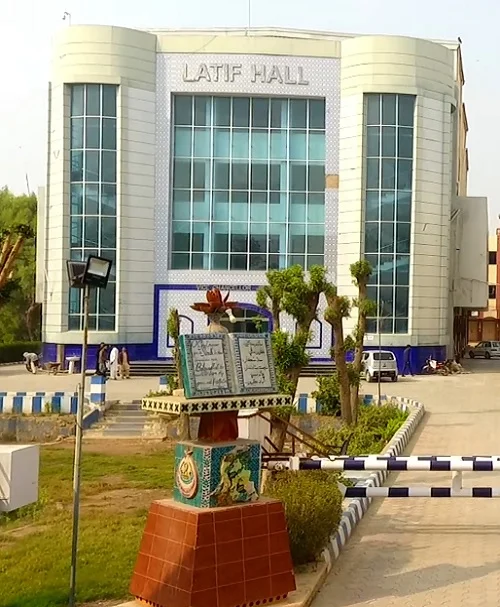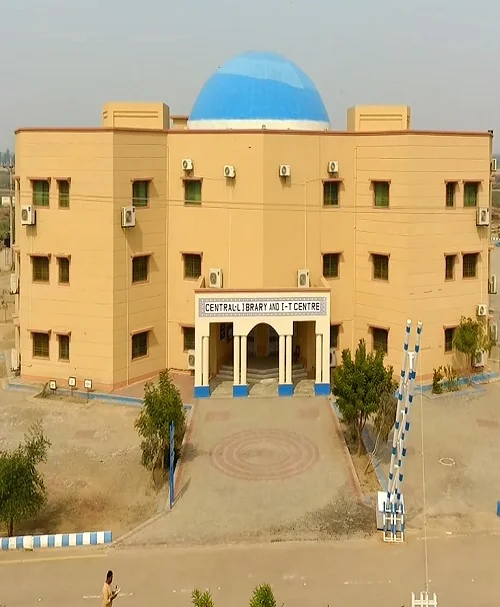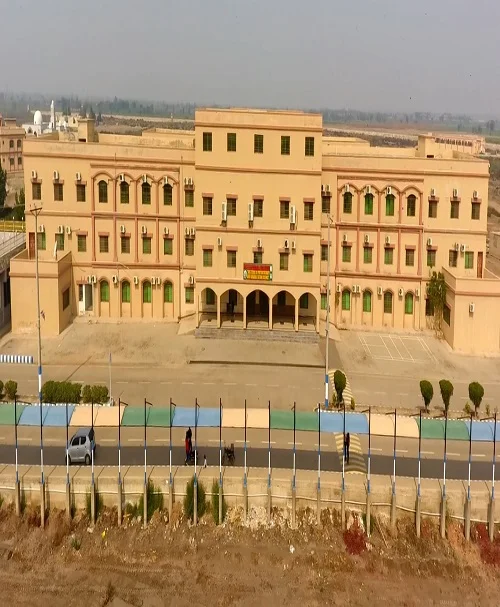Role of ORIC
The Office of Research, Innovation, and Commercialization (ORIC) at PUMHSW plays a pivotal role in fostering a vibrant research culture, promoting innovation, and facilitating the commercialization of research outcomes. The key roles and responsibilities of ORIC at PUMHSW are detailed below:
1. Research Development and Support
• Proposal Development: Assist faculty and students in developing research proposals by providing guidance on research design, methodology, and funding opportunities.
• Funding Acquisition: Identify and secure funding from internal and external sources, including grants, contracts, and partnerships.
• Resource Provision: Ensure researchers have access to necessary resources such as laboratories, equipment, and research materials.
2. Promotion of Innovation and Commercialization
• Intellectual Property Management: Support the protection of intellectual property through patents, trademarks, and copyrights.
• Technology Transfer: Facilitate the transfer of research innovations from the laboratory to industry, including licensing agreements and collaborative projects.
• Startup Support: Encourage the formation of startups and spin-off companies based on university research, offering incubation and business development support.
3. Capacity Building and Training
• Workshops and Seminars: Organize training sessions on research methodologies, data analysis, scientific writing, and grant application processes.
• Mentorship Programs: Establish mentorship initiatives to pair junior researchers with experienced faculty for guidance and skill development.
• Professional Development: Promote continuous professional development by facilitating participation in national and international conferences, workshops, and symposiums.
4. Ethics and Compliance
• Ethics Review: Oversee the ethical review of research proposals to ensure compliance with national and international standards.
• Regulatory Compliance: Ensure all research activities comply with relevant regulations, policies, and guidelines.
• Training on Ethics: Provide mandatory training for researchers on ethical practices and responsible conduct of research.
5. Collaboration and Partnerships
• University-Industry Linkages: Develop and maintain strong partnerships with industry to promote collaborative research and commercialization of research outputs.
• Inter-Institutional Collaborations: Foster collaborations with other academic and research institutions, both nationally and internationally.
• Community Engagement: Engage with the community to identify research needs and promote the application of research findings to address local health issues.
6. Monitoring and Evaluation
• Research Assessment: Conduct regular assessments of research projects to monitor progress and ensure quality.
• Impact Evaluation: Evaluate the impact of research activities on the academic community, industry, and society at large.
• Feedback Mechanism: Implement feedback mechanisms to gather input from researchers and stakeholders for continuous improvement of research processes.
7. Dissemination of Research
• Publications Support: Support researchers in publishing their findings in high-impact journals and other academic platforms.
• Conferences and Symposia: Organize and participate in conferences, seminars, and symposia to disseminate research findings and foster academic discourse.
• Public Outreach: Promote public understanding of science through community outreach programs and public lectures.
8. Strategic Planning and Policy Development
• Research Strategy: Develop and implement strategic plans to guide the university's research agenda and priorities.
• Policy Formulation: Formulate and update research policies to align with emerging trends and best practices in research and innovation.
• Strategic Initiatives: Launch strategic initiatives and programs to address key research challenges and opportunities.
9. Infrastructure Development
• Research Facilities: Develop and maintain state-of-the-art research facilities and infrastructure to support cutting-edge research.
• Technology Enhancement: Invest in modern technologies and tools to enhance research capabilities and outcomes.
• Sustainable Practices: Promote sustainable practices in research activities and infrastructure management.
Conclusion
ORIC at PUMHSW is integral to fostering a thriving research ecosystem that promotes innovation, ethical practices, and the commercialization of research. By supporting researchers, facilitating collaborations, and ensuring compliance with ethical and regulatory standards, ORIC plays a crucial role in advancing the university's mission to contribute to medical and health sciences and positively impact society.
1. Research Development and Support
• Proposal Development: Assist faculty and students in developing research proposals by providing guidance on research design, methodology, and funding opportunities.
• Funding Acquisition: Identify and secure funding from internal and external sources, including grants, contracts, and partnerships.
• Resource Provision: Ensure researchers have access to necessary resources such as laboratories, equipment, and research materials.
2. Promotion of Innovation and Commercialization
• Intellectual Property Management: Support the protection of intellectual property through patents, trademarks, and copyrights.
• Technology Transfer: Facilitate the transfer of research innovations from the laboratory to industry, including licensing agreements and collaborative projects.
• Startup Support: Encourage the formation of startups and spin-off companies based on university research, offering incubation and business development support.
3. Capacity Building and Training
• Workshops and Seminars: Organize training sessions on research methodologies, data analysis, scientific writing, and grant application processes.
• Mentorship Programs: Establish mentorship initiatives to pair junior researchers with experienced faculty for guidance and skill development.
• Professional Development: Promote continuous professional development by facilitating participation in national and international conferences, workshops, and symposiums.
4. Ethics and Compliance
• Ethics Review: Oversee the ethical review of research proposals to ensure compliance with national and international standards.
• Regulatory Compliance: Ensure all research activities comply with relevant regulations, policies, and guidelines.
• Training on Ethics: Provide mandatory training for researchers on ethical practices and responsible conduct of research.
5. Collaboration and Partnerships
• University-Industry Linkages: Develop and maintain strong partnerships with industry to promote collaborative research and commercialization of research outputs.
• Inter-Institutional Collaborations: Foster collaborations with other academic and research institutions, both nationally and internationally.
• Community Engagement: Engage with the community to identify research needs and promote the application of research findings to address local health issues.
6. Monitoring and Evaluation
• Research Assessment: Conduct regular assessments of research projects to monitor progress and ensure quality.
• Impact Evaluation: Evaluate the impact of research activities on the academic community, industry, and society at large.
• Feedback Mechanism: Implement feedback mechanisms to gather input from researchers and stakeholders for continuous improvement of research processes.
7. Dissemination of Research
• Publications Support: Support researchers in publishing their findings in high-impact journals and other academic platforms.
• Conferences and Symposia: Organize and participate in conferences, seminars, and symposia to disseminate research findings and foster academic discourse.
• Public Outreach: Promote public understanding of science through community outreach programs and public lectures.
8. Strategic Planning and Policy Development
• Research Strategy: Develop and implement strategic plans to guide the university's research agenda and priorities.
• Policy Formulation: Formulate and update research policies to align with emerging trends and best practices in research and innovation.
• Strategic Initiatives: Launch strategic initiatives and programs to address key research challenges and opportunities.
9. Infrastructure Development
• Research Facilities: Develop and maintain state-of-the-art research facilities and infrastructure to support cutting-edge research.
• Technology Enhancement: Invest in modern technologies and tools to enhance research capabilities and outcomes.
• Sustainable Practices: Promote sustainable practices in research activities and infrastructure management.
Conclusion
ORIC at PUMHSW is integral to fostering a thriving research ecosystem that promotes innovation, ethical practices, and the commercialization of research. By supporting researchers, facilitating collaborations, and ensuring compliance with ethical and regulatory standards, ORIC plays a crucial role in advancing the university's mission to contribute to medical and health sciences and positively impact society.






